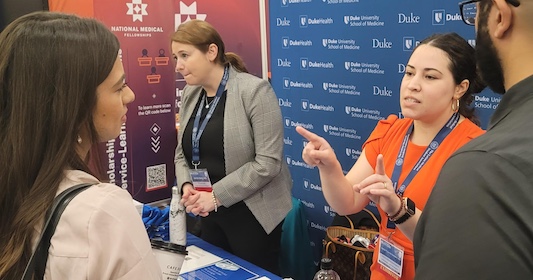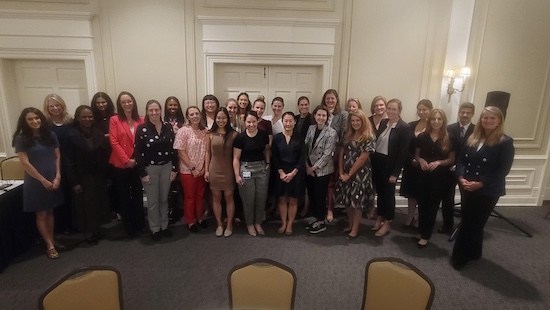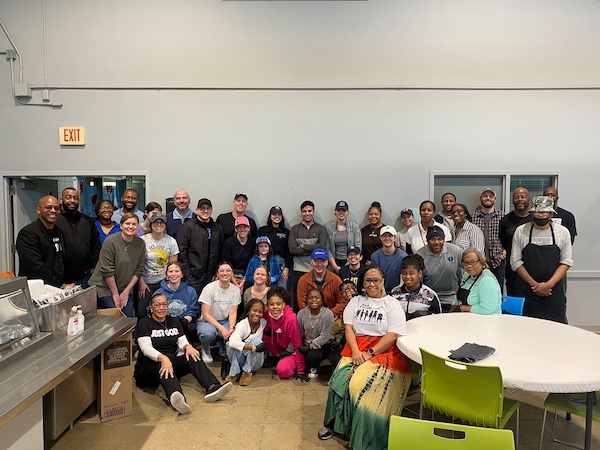We are proud to have so many General Surgery residents actively involved in leading the department forward in its EDI mission.
From leading and participating in SEEDS Initiative programming, to sponsoring scholarship opportunities for URiM residents and medical students, to planning and hosting community outreach in Durham and the surrounding areas and so much more, the Duke General Surgery Residency Program is actively driving change in surgery.
Residents Planting SEEDS

As participants in the Sustaining Equity, Elevating Diversity in Surgery (SEEDS) initiative, Duke General Surgery residents are proving just how integral EDI-focused efforts are to new surgeons and patients alike.
Some SEEDS-hosted initiatives that our residents have participated in include, but are not limited to:
- Attending and presenting at affinity group national conferences, such as the Latino Medical Student Association (LMSA) annual conference, the Society of Black Academic Surgeons (SBAS) annual conference, and more
- Attending events hosted by the Duke Chapter of the Association of Women Surgeons (AWS), including mentorship meetings, networking opportunities, and panel discussions
- Visiting historically black college and university (HBCU) medical school campuses to speak with medical students interested in pursuing surgery


Duke General Surgery in the Community
Duke is proudly at home in Durham, North Carolina, and our residents consistently show just how important the local community is.
Residents regularly have opportunities to engage with members of the Durham and Triangle communities, from taking part in Days of Service, to serving hot meals to underserved peoples, to engaging with youths from underserved areas and introducing them to surgery and medicine through the ASSET program.


Diversity in Education
Duke Surgery is dedicated to being better tomorrow than we are today. Visit our Diversity in Education section to learn more about our departmental commitment to diversity, along with opportunities for residents and medical students who identify as underrepresented in medicine (URiM).